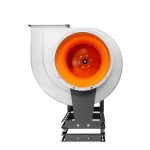In the U.S., an accredited investor definition is provided by the Securities and Exchange Commission (SEC) in Regulation D Rule 501. As well, local jurisdictions regulate accredited investors in different ways that are sometimes defined by the local market regulator or other capable of authority. The “accredited investor test,” although not a literal written test per se, when passed by a potential investor opens that investor up to new opportunities not available to the average investor. So, what are the qualifications to be met that provide such a status to the investor?
Qualifying as an Accredited Investor
One way to enter the category of an accredited investor, an individual must have earned more than $200,000 over the last two years (more than $300,000 with a spouse) with an anticipated equivalent or greater income in the current year.
Another way to pass the “accredited investor test” is to have a net worth (excluding your primary residence) greater than $1 million, either individually or with a spouse. You may also qualify as an accredited investor if you are a general partner, executive officer, director, or an associated combination of these for the issuer of unregistered securities.
With regards to an entity, they qualify as an accredited investor if it is a private business development company or an organization with assets greater than $5 million. Any entity having equity owners as accredited investors may itself be an accredited investor. Forming or purchasing an organization for the exclusive purpose of purchasing certain securities is not permitted.
The accredited investor definition was modified by Congress in 2016 -to include investment advisors and registered brokers. An individual who is able to demonstrate a particular amount of job experience or level of education that points to his or her professional knowledge of unregistered securities may be considered an accredited investor.
Applying for Accredited Investor Status
With regards to passing the “accredited investor test,” persons or entities intending to qualify for accredited investor status may ask an issuer of unregistered securities for the opportunity to invest. Issuer may then ask the applicant to answer a questionnaire and also attach a number of different documents, including balance sheet, financial statements, and account information. The attachments may also clued W-2 forms, tax returns, salary slips, review letters from investment advisers or brokers, tax attorneys, or CPAs. The issuer of securities may also check the applicant’s credit report as part of the evaluation.
The Opportunities Hold Great Profit Potential, But Understand the Risks
The financial investment opportunities available to an accredited investor include nonregistered investments offered by hedge funds, equity funds, and venture capital firms. Capital funding is routinely sought from leaders of various business ventures. Although you may have obtained accredited investor status, it is important to also understand and assess the purpose of, and significant risks involved with, any particular venture before deciding to invest.






